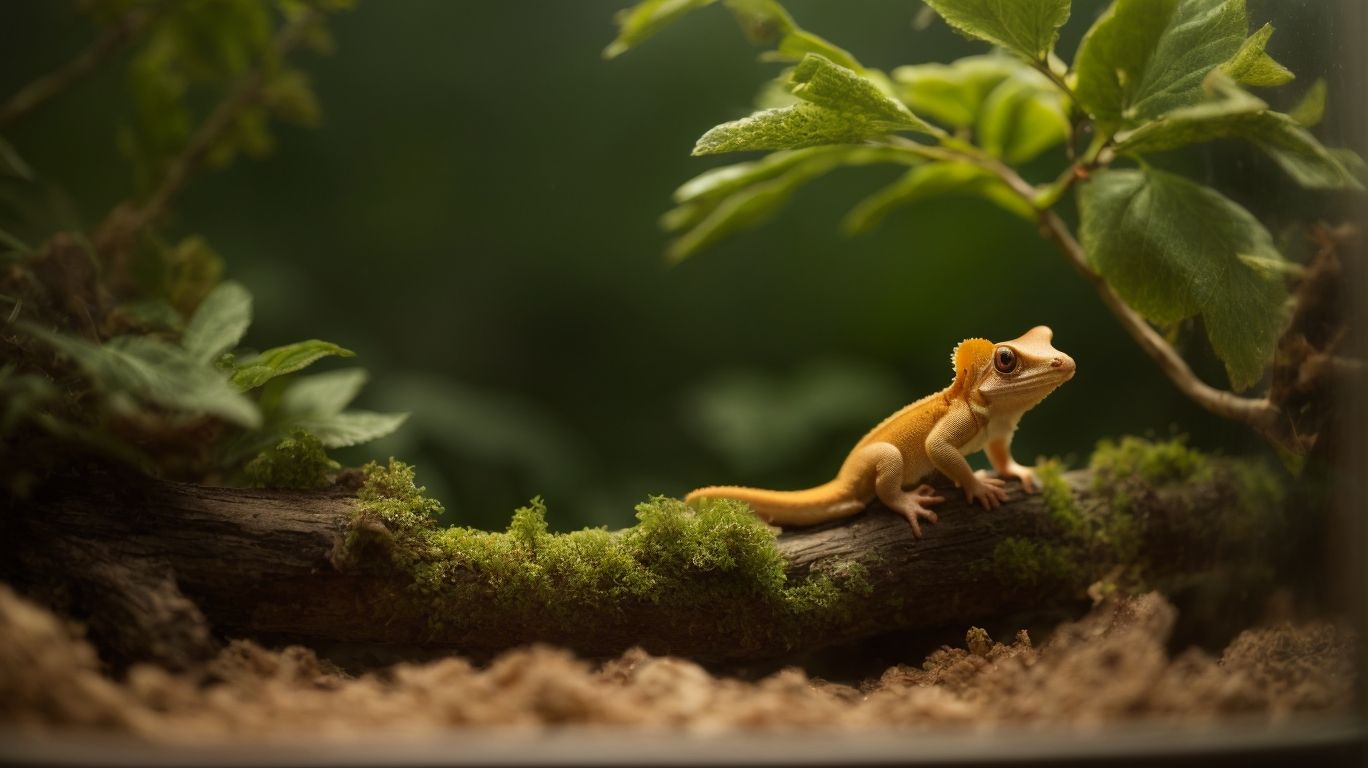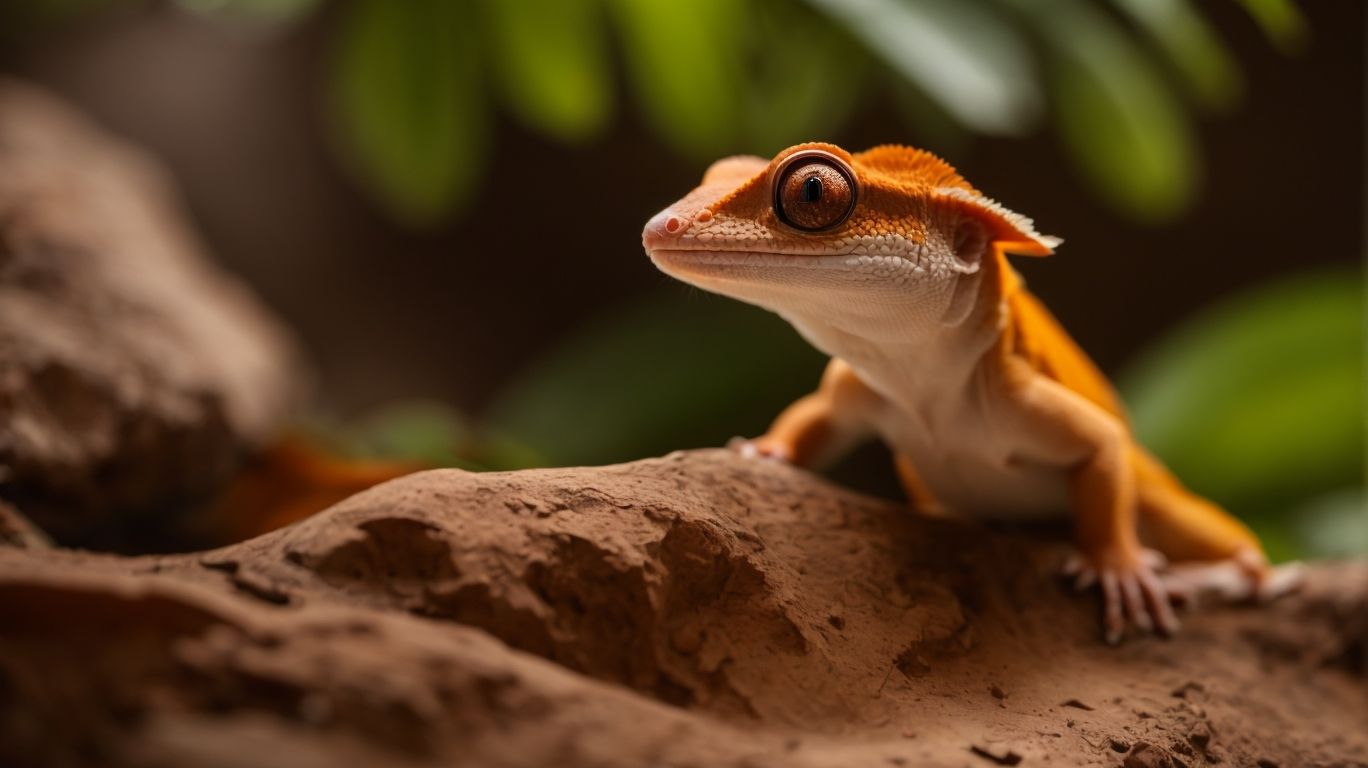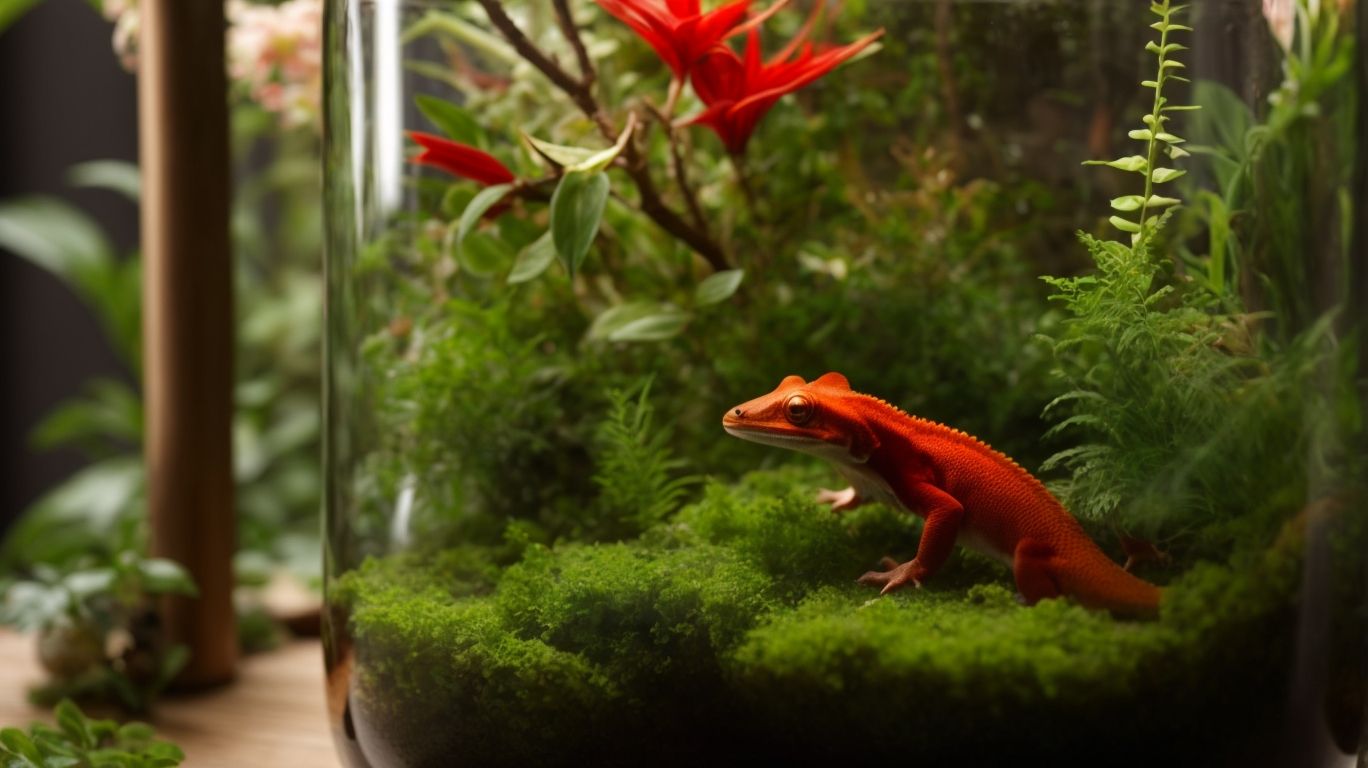
Caring for Your Baby Crested Gecko: Tips and Tricks
Are you considering getting a baby crested gecko as a new pet? Caring for these fascinating creatures requires proper knowledge and commitment. In this article, we will discuss everything you need to know about baby crested geckos, including their needs, care tips, and common mistakes to avoid.
From setting up their enclosure to handling and taming, we’ve got you covered with valuable insights to ensure the health and happiness of your new pet. So, let’s dive into the world of baby crested geckos and learn how to care for them like a pro!
What Is a Baby Crested Gecko?
A baby crested gecko, also known as Correlophus ciliatus, is a small, arboreal reptile that requires specific care and attention to thrive in captivity. They are known for their unique characteristics and their ability to thrive in a controlled environment.
Their natural habitat in the wild includes the rainforests of New Caledonia, where they spend their time in trees and foliage.
In captivity, it’s crucial to replicate this environment, providing them with vertical space for climbing, live plants, and suitable hiding spots. Maintaining optimal temperature and humidity levels, along with a proper diet consisting of gut-loaded insects and specially formulated crested gecko food, is essential for their health and well-being.
These geckos also require a suitable substrate for digging and laying eggs, as well as UVB lighting to support their calcium absorption and overall growth.
What Do Baby Crested Geckos Need?
Baby crested geckos have specific requirements for their care and well-being, including appropriate housing, a balanced diet, optimal temperature, and humidity levels, regular handling, and monitoring of their health and behavior.
When it comes to feeding, it’s essential to offer a diet that consists of a variety of insects, fruit purees, and meal replacement powders.
The habitat setup should include live plants, branches, and hiding spaces to mimic their natural environment. Maintaining the right temperature, around 72-80°F (22-27°C), and humidity levels between 60-80% is crucial. Gentle and infrequent handling is recommended, as baby crested geckos can be delicate.
It’s vital to monitor their overall well-being and behavior, looking out for any signs of stress, illness, or inadequate nutrition. A balanced diet and adequate UVB lighting play a crucial role in their growth and development.
Proper Housing
Proper housing is crucial for the well-being of a baby crested gecko. This includes an appropriate enclosure, suitable substrate, regulated temperature and humidity levels, and adequate lighting.
It’s important to maintain a temperature range of 72-80°F (22-27°C) during the day and slightly cooler at night. Humidity levels should also be kept between 60-80% to mimic their natural habitat.
Choosing a suitable substrate, such as coconut fiber or cypress mulch, is necessary for retaining moisture and providing a comfortable surface for climbing and hiding. Additionally, full-spectrum UVB lighting is crucial for their calcium metabolism and overall well-being.
Regular spot cleaning and thorough enclosure cleaning are essential for maintaining a healthy environment for the gecko.
Appropriate Diet
Ensuring an appropriate diet for a baby crested gecko involves offering a variety of gut-loaded insects, supplemented with essential vitamins and calcium, while also considering the impact of UVB lighting and establishing a balanced feeding schedule.
This approach to feeding is crucial as baby crested geckos require a diverse diet to meet their nutritional needs for growth and development. Gut-loading insects with nutrient-rich foods ensures that the gecko’s prey is also nutritious.
Calcium and vitamin supplementation is essential for bone development and overall health. UVB lighting plays a significant role in the metabolism of nutrients, aiding in the absorption of calcium and other vital minerals essential for the gecko’s well-being.
Ideal Temperature and Humidity
Maintaining an ideal temperature range and humidity level within the baby crested gecko’s habitat is essential for their well-being, as it supports their captive diet, metabolic processes, and the effectiveness of UVB lighting.
Proper environmental conditions are crucial for the digestion and nutrient absorption of baby crested geckos. Maintaining optimal temperatures and humidity levels helps them metabolize food efficiently, promoting growth and overall health.
UVB lighting is also essential for these geckos as it aids in the synthesis of vitamin D3, which is necessary for calcium absorption and proper bone development. Failing to maintain these environmental factors within recommended ranges can compromise the health and growth of baby crested geckos, potentially leading to issues like metabolic bone disease.
Regular Handling and Socialization
Engaging in regular handling and socialization with a baby crested gecko is important for their well-being, as it promotes positive behavior, stress management, and a healthy level of comfort in their environment.
Handling and socialization are crucial for the development of trust and familiarity in crested geckos when it comes to human interaction. This can greatly reduce their stress levels and promote a sense of security. It also allows them to become comfortable with being handled and helps them acclimate to different environmental stimuli, ultimately improving their overall behavior.
Regular handling is important for monitoring the health of crested geckos and identifying any potential issues early on. This ensures that their well-being is always a top priority.
What Should You Consider Before Getting a Baby Crested Gecko?
Before acquiring a baby crested gecko, it’s crucial to consider the time, commitment, and financial responsibilities involved in their care, as well as the impact on other pets in the household and the availability of veterinary care when needed.
Time commitment: Baby crested geckos require a considerable time investment for their care. This includes regular feeding, cleaning, and monitoring of their environment. Their long lifespan, spanning up to 15-20 years, necessitates a strong commitment from the owner.
Financial responsibilities: Initial setup costs for the proper habitat and ongoing expenses for food, supplements, and veterinary visits should be factored in.
Impact on other pets: It’s also important to assess how the introduction of a new pet may affect existing animals in the household.
Veterinary care: Additionally, it’s crucial to ensure that there is accessibility to specialized veterinary care for reptiles in the area.
Time and Commitment
Owning a baby crested gecko requires a significant investment of time and commitment in terms of their care, feeding, handling, and monitoring of their well-being, which should be considered before bringing one into your home.
Taking care of a baby crested gecko requires daily feeding with a balanced diet consisting of insects, fruit, and powdered supplements. It’s also important to maintain the proper humidity and temperature levels in their enclosure. Regular handling and socialization are crucial for their overall health and comfort. Keep a close eye on their growth, behavior, and shedding cycles to catch any potential health issues early on.
Providing a stable and nurturing environment is essential for supporting their growth and well-being. By following these steps, you can ensure the well-being of your baby crested gecko and help them thrive.
Financial Responsibilities
Owning a baby crested gecko comes with financial responsibilities, including the costs associated with their diet, habitat setup, and potential veterinary care, which should be carefully evaluated before making a commitment to care for one.
Crested geckos have a diet predominantly consisting of live insects, such as crickets, mealworms, and occasionally fruit and nectar.
These should be factored into the budget, along with the ongoing expense of maintaining their habitat, which includes heating, lighting, substrate, and decor to mimic their natural environment.
It’s important to consider the potential need for veterinary care, which may arise due to health issues, injuries, or parasites, adding another layer to the financial responsibilities of caring for a baby crested gecko.
Other Pets in the Household
The presence of other pets in the household should be considered before getting a baby crested gecko, as it may impact their socialization, stress management, and overall well-being in the shared environment.
Introducing a crested gecko to a household with other pets enables them to experience a diverse social environment. Positive interactions with other animals, such as gentle cats or calm dogs, can provide the gecko with opportunities for socializing and adjusting to various stimuli.
It is crucial to carefully monitor these interactions to ensure that the gecko is not subjected to excessive stress.
Creating a harmonious cohabitation among different pets involves strategic environmental planning and fostering a peaceful, stress-free ambiance that benefits all the animals in the household.
How To Care for a Baby Crested Gecko?
Caring for a baby crested gecko involves various aspects such as setting up their habitat, providing a balanced diet, regular handling and monitoring of their health and growth, ensuring proper hygiene, and offering appropriate supplementation and access to water.
Creating a suitable habitat for your baby crested gecko is essential. It should include a terrarium with proper heating, lighting, and humidity levels.
When it comes to feeding, a diet of live insects, fruit, and commercial crested gecko diet is recommended for their nutrition. Gentle and regular handling helps the gecko get accustomed to human interaction. Regular health check-ups and monitoring physical development is crucial.
Ensure their environment is clean, and they have access to fresh water and essential supplements.
Setting Up the Enclosure
The proper setup of the enclosure for a baby crested gecko involves selecting suitable substrate, ensuring cleanliness, and providing access to UVB lighting. This creates a secure and comfortable environment for their well-being.
When choosing the substrate, it’s crucial to opt for options like coconut husk, moss, or paper towels. These materials aid in maintaining optimal humidity levels, which is essential for the health of a baby crested gecko in captivity.
Regular cleaning of the enclosure is also crucial in preventing the buildup of waste and bacteria. This helps to keep the gecko’s environment clean and hygienic.
UVB lighting is vital for calcium metabolism and overall health. It’s recommended to place the UVB light near the basking spot to ensure the gecko receives sufficient exposure. This comprehensive setup contributes to the well-being and thriving of a baby crested gecko in captivity.
Feeding and Hydration
Providing a balanced diet, including a variety of insects, essential vitamins, and appropriate supplementation, as well as access to water, is essential for meeting the nutritional needs of a baby crested gecko.
Baby crested geckos require a diverse diet to ensure they receive all the necessary nutrients for proper growth and development. Insects such as crickets, mealworms, and waxworms are excellent protein sources, while gut-loaded insects provide essential vitamins and minerals.
Dusting the insects with calcium and vitamin D3 supplements is crucial to prevent metabolic bone disease. Offering fresh water in a shallow dish or misting the enclosure regularly helps maintain hydration, which is essential for their well-being.
Handling and Taming
Engaging in gentle handling and socialization is crucial for the growth and well-being of a baby crested gecko. It promotes positive interactions and aids in their taming process.
Introducing a baby crested gecko to regular handling can help it become more comfortable with human interaction. This can result in a more social and docile temperament, reducing stress and fear for their overall well-being.
Socializing with other geckos of the same species also allows for natural behavior development and learning. These experiences can help baby crested geckos grow into healthy, confident adults who can form strong bonds with their human caregivers.
Health and Wellness
Monitoring the health and wellness of a baby crested gecko involves regular checks for any signs of illness, parasite prevention measures, appropriate calcium supplementation, maintaining proper hygiene, and ensuring access to UVB lighting for their overall well-being.
Regular monitoring includes observing the gecko’s behavior and appetite, inspecting their skin for any abnormalities, and maintaining a clean environment to prevent the risk of parasites.
Providing a balanced diet with calcium supplementation is crucial for their bone health and growth. Proper hygiene practices such as cleaning the enclosure and water bowl are essential to prevent bacterial and fungal infections. UVB lighting plays a vital role in metabolizing calcium and supporting their overall metabolic function.
What Are Some Common Mistakes When Caring for a Baby Crested Gecko?
Several common mistakes can occur when caring for a baby crested gecko, including inadequate housing, poor nutrition, improper handling and socialization, and overlooking signs of illness, all of which can impact their well-being and overall health.
Inadequate housing may lead to stress and inadequate space for the gecko to thrive, while poor nutrition can result in deficiencies and health issues.
Improper handling and socialization can cause the gecko to feel threatened or become aggressive. It’s crucial to recognize signs of illness, such as loss of appetite or lethargy, and seek proper veterinary care to ensure the well-being of the baby crested gecko.
Inadequate Housing
Inadequate housing for a baby crested gecko can have detrimental effects on their well-being. This includes issues related to habitat setup, temperature and humidity regulation, substrate suitability, and maintenance practices.
This lack of proper housing can lead to stress and health problems for the gecko. They require a well-designed habitat that mimics their natural environment.
Maintaining the appropriate temperature and humidity levels is crucial for their physiological functions and overall comfort. Choosing a suitable substrate is essential to support their natural behaviors and provide a hygienic living environment.
Regular cleaning of the habitat is also vital to prevent the build-up of bacteria and fungi, which can negatively impact the gecko’s health.
Poor Nutrition
Providing poor nutrition for a baby crested gecko, such as a lack of diverse diet, inadequate supplementation, or improper gut-loading of insects, can lead to significant health issues and deficiencies in their overall well-being.
This lack of diet diversity can result in a lack of essential nutrients, leading to stunted growth and weakened immune systems.
Calcium and vitamin deficiencies may cause metabolic bone disease, impacting the gecko’s skeletal structure and overall mobility.
It’s crucial for owners to ensure a varied diet, proper gut-loading of insects, and regular supplementation to support the baby crested gecko’s health and development.
Improper Handling and Socialization
Improper handling and socialization practices can result in negative behavioral impacts, stress-related issues, and a lack of comfort for a baby crested gecko within their environment, affecting their overall well-being.
This can lead to the gecko feeling distressed, displaying defensive behaviors or even becoming withdrawn.
It is crucial to create a secure and comfortable habitat that mimics their natural environment, including suitable hiding spots and adequate temperature and humidity levels.
Inadequate socialization may also lead to difficulties in interacting with humans and other geckos, making it essential to gradually introduce positive handling experiences to build trust and reduce stress.
Proper care and socialization play a pivotal role in ensuring the mental and physical well-being of a baby crested gecko.
Ignoring Signs of Illness
Ignoring signs of illness in a baby crested gecko can lead to exacerbated health issues and potential complications, highlighting the critical need for regular monitoring and prompt veterinary care when necessary.
As young crested geckos are vulnerable to various health concerns, it’s essential to be attentive to any changes in their behavior, eating habits, or physical appearance. Regular health monitoring allows for early detection of potential issues, enabling timely intervention to prevent the condition from worsening.
Prompt veterinary care is crucial in addressing any health problems that arise, ensuring the well-being of the gecko. By staying vigilant and seeking professional help when needed, owners can safeguard their baby crested geckos’ health and provide them with the best possible care.




No Comments